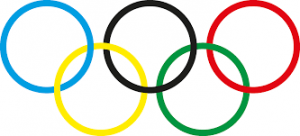
Thousands of years in the making, the Olympics began as part of a religious festival honoring the Greek god Zeus in the rural Greek town of Olympia. But how did it become the greatest show of sporting excellence on earth? Armand D’Angour explains the evolution of the Olympics.
Below, please view the video about the origins of the Olympics:
More resources for you to explore:
Interested in the Ancient Olympic Games and the mythology behind them? Click here to find out more! Do chariot racing, the pankration, and twenty competitors on one running track at once sound challenging? Visit this site to find out more about the competitions, spirit of the ancient Olympics, and stories of the competitors.
For all things Olympic go to Olympic.org, and take a look at the featured athletes, youth development and future Olympic cities. Which city will host the next Olympic games in 2024? Read about how the next Olympic city will be chosen and the process that goes along with it here. After all the festivities and competitions are done, see “What Becomes of Olympic Stadiums.” Interested in following Olympic news on social media? Visit Twitter!
Ever wonder about the meaning behind the Olympic Symbols? What is the meaning of the five rings, the flame, and the motto “Citius, Altius, Fortius.” Read this and find out their meanings. Interested in Olympic Medals? Are they really made of Gold, Silver and Bronze? Learn the truth here!
Finally, think about the following question and respond in the comments section below with your thoughts:
Do the Olympics encourage sporting activity at all levels or just for elite sportspeople?
I think that the Olympics are here to encourage people to become athletes or keep striving in athletics. I also don’t think it is just elite sports people. I think that you become idolized and people talk about you like you have godly ability after you medal at an Olympic game.